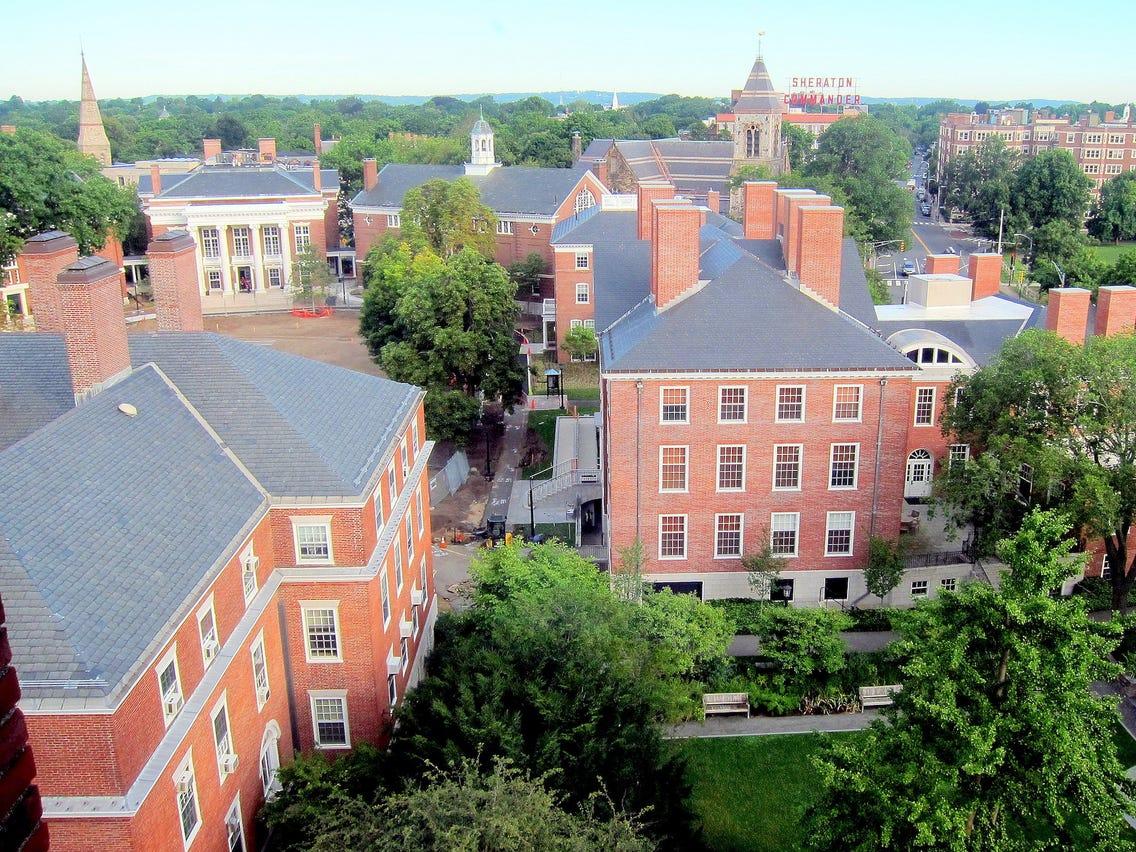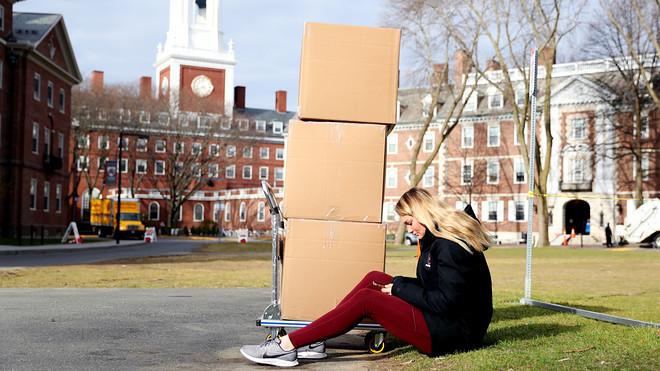Time For A Gap Year: Harvard Tells Students Prepare For Likelihood Of Online Only Fall Courses
In what could be a precedent-setting move by arguably the world’s most prestigious academic institution, Harvard University announced Monday that the extreme uncertainty surrounding the coronavirus pandemic and accompanying economic shutdowns means the school is mulling the possibility of going to online only classes for the Fall semester.
“We cannot be certain that it will be safe to resume all usual activities” by autumn, university provost Alan Garber wrote in a school-wide memo on Monday, reports the WSJ. “Consequently, we will need to prepare for a scenario in which much or all learning will be conducted remotely.”
And in a statement sure to be met with collective eye-rolling among a student body prepared to drop some $70,000+ only to kick the year off with months or possibly more of sub-par ‘remote learning’ courses, school spokesman Jason Newton added in an email, “The primary message is that the University is moving forward with the fall semester, rather than delaying it.”

We doubt the students and families, many of which are likely going into debt to get that top-rate and in most cases out-of-state education, will see it that way (though in Harvard’s case – an exception to the norm – its massive endowment and extremely selective acceptance rate means at least 70% of students receive typically massive financial aid, tuition breaks and scholarships via the school’s ample means).
Last week Harvard announced it has cancelled freshman pre-orientation programs set to take place in August, suggesting further that the Fall semester just won’t happen like it normally would in physical classrooms and on campus.
As we detailed earlier, more broadly across the nation college administrations have remained aloof to student demands either for refunds from this year or greatly reduced tuition for online format classes in the future, given it’s just not the same. But these institutions naturally aren’t feeling generous given most are in mere survival mode, making both budget and in some cases staff cuts.
Schools are already losing tens of millions in campus and summer fees given shutdowns, not to mention sports programs being shuttered, also as the the question of whether in-person instruction will even happen next Fall remains the biggest anxiety-inducing huge unknown, potentially delivering a financial fatal blow to a number of already struggling schools. Endowment values have plunged along with markets to boot. And then there’s a no doubt a greatly diminished incoming freshman class, and with that severely declining numbers of tuition checks coming in.

Last week The Washington Post summarized the crisis quite well: “The coronavirus crisis is forcing a reckoning over the price and value of higher education” — given that at the root of this, WaPo noted, is this: “Schools geared toward full-time students… offer, in normal times, academic programs with a personal touch, including seminars, laboratory classes, office hours and research opportunities with faculty.”
If Harvard eventually announces an online-only Fall semester, it’s most likely many others will follow suit, leaving tuition-paying families to ponder the increasingly attractive possibility of taking a well-timed gap year. As Forbes comments on this trend:
College students, but particularly current high school seniors, are considering taking a gap year while they wait for campus life to resume… This year, students will have to think outside of the box of the traditional gap year occupations. Rather than begin their college career through online classes, students will be dipping their toes into various nontraditional and professional opportunities.
After all, who wants to drop an initial $40K to $60K or more to potentially sit in the family living room for Fall 2020 and take online classes?
Should this ‘domino effect’ happen, the financial blow to many higher-ed institutions (though not Harvard or wealthy Ivy League schools it should be noted) could prove irreversible and even fatal to continuing operations.
Tyler Durden
Thu, 04/30/2020 – 23:20
via ZeroHedge News https://ift.tt/2KNIwon Tyler Durden